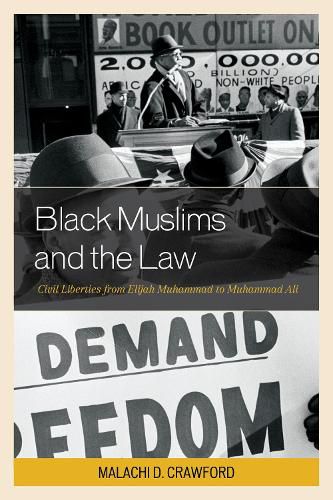Readings Newsletter
Become a Readings Member to make your shopping experience even easier.
Sign in or sign up for free!
You’re not far away from qualifying for FREE standard shipping within Australia
You’ve qualified for FREE standard shipping within Australia
The cart is loading…






Black Muslims and the Law: Civil Liberties From Elijah Muhammad to Muhammad Ali examines the Nation of Islam’s quest for civil liberties as what might arguably be called the inaugural and first sustained challenge to the suppression of religious freedom in African American legal history. Borrowing insights from A. Leon Higgonbotham Jr.‘s classic works on American slavery jurisprudence, Black Muslims and the Law reveals the Nation of Islam’s strategic efforts to engage governmental officials from a position of power, and suggests the federal executive, congressmen, judges, lawyers, law enforcement officials, prison administrators, state governments, and African American civic leaders held a common understanding of what it meant to be and not to be African American and religious in the period between World War II and the Vietnam War. The work raises basic questions about the rights of African descended people to define god, question white moral authority, and critique the moral legitimacy of American war efforts according to their own beliefs and standards.
$9.00 standard shipping within Australia
FREE standard shipping within Australia for orders over $100.00
Express & International shipping calculated at checkout
Black Muslims and the Law: Civil Liberties From Elijah Muhammad to Muhammad Ali examines the Nation of Islam’s quest for civil liberties as what might arguably be called the inaugural and first sustained challenge to the suppression of religious freedom in African American legal history. Borrowing insights from A. Leon Higgonbotham Jr.‘s classic works on American slavery jurisprudence, Black Muslims and the Law reveals the Nation of Islam’s strategic efforts to engage governmental officials from a position of power, and suggests the federal executive, congressmen, judges, lawyers, law enforcement officials, prison administrators, state governments, and African American civic leaders held a common understanding of what it meant to be and not to be African American and religious in the period between World War II and the Vietnam War. The work raises basic questions about the rights of African descended people to define god, question white moral authority, and critique the moral legitimacy of American war efforts according to their own beliefs and standards.